Since 1982, Chris Scott has been overlanding in one of the harshest and most remote environments on earth, the Sahara desert. So much so that he has become the go-to man for all things Sahara adventure and has written countless books on the subject (Sahara Overland, Adventure Motorcycling Handbook, Overlanders’ Handbook and Morocco Overland to name a few) that have become bibles for anyone looking to venture into the sandy wilderness.
With more than 50 expeditions and tours under his belt, his preferred weapon of choice is a trusty, if slightly rusty, Land Cruiser. We caught up with him at the Adventure Travel Film Festival to discuss his love of Land Cruisers, his experiences in the desert and any pearls of wisdom for would-be adventurers.
What drew you to the Sahara in the first place?
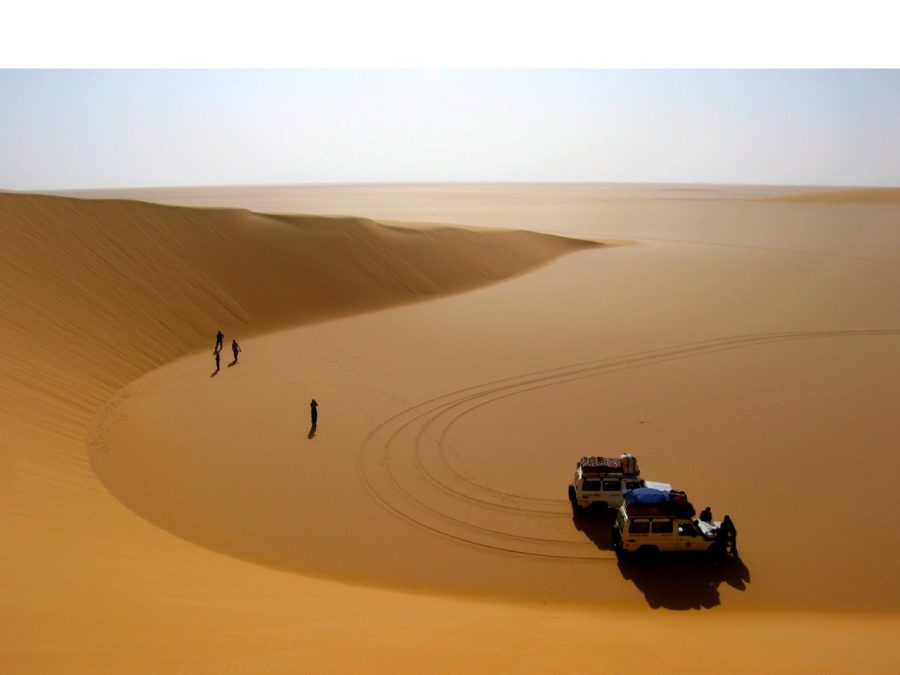
Chris Scott: “In the 1970s, I was into off-road motorbiking but couldn’t really do it easily in the UK so thought “where would be the next best place in terms of space and wilderness?” I arrived at the Sahara. However, motorbikes aren’t really suited to this due to the limited supplies they can carry so upgrading to a car was an obvious decision.”
Why do you choose a Land Cruiser as your go-to vehicle for your Saharan overlanding travels?
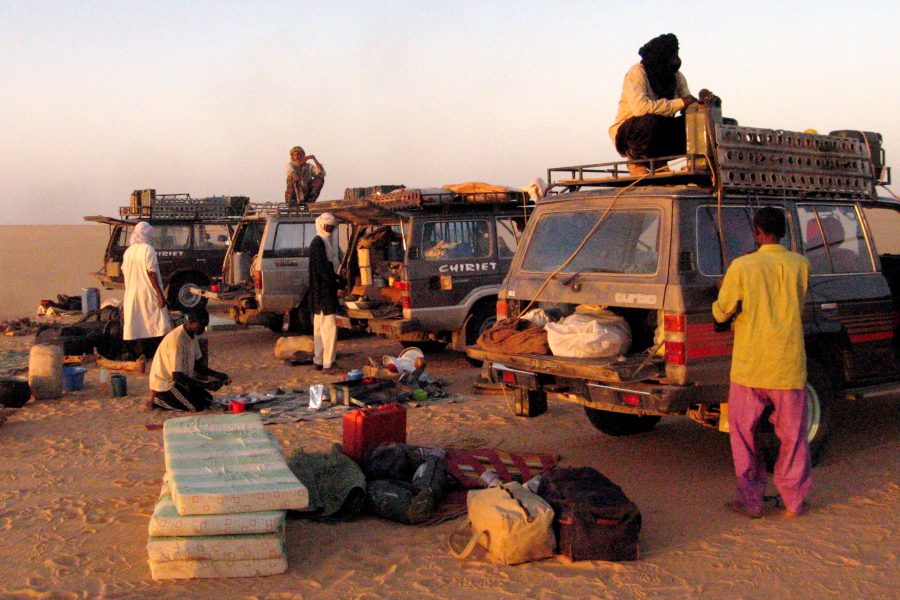
Chris Scott: “I had my Land Rover phase, obviously coming from Britain you naturally think that is the right fit but when you get outside of the UK you realise that the world isn’t entirely dominated by Land Rovers. All over the world, Australia, the Sahara, and developing countries all use Land Cruisers. The Land Cruiser has a big engine and the transmission to go with it which is key when driving through the desert. They are often overengineered which means they are incredibly reliable and sturdy which gives you the confidence when travelling through tough terrain.”
How do you prepare your Land Cruisers before setting off?
Chris Scott: “New tyres are a must, whatever tires are on the vehicle, it is always best to get rid and buy some new quality tires from a respectable brand. Michelin for example is widely known for use in the Sahara with their range of tyres. It will end up being your most common breakdown if you don’t choose a decent tire as you will always be getting punctures.”
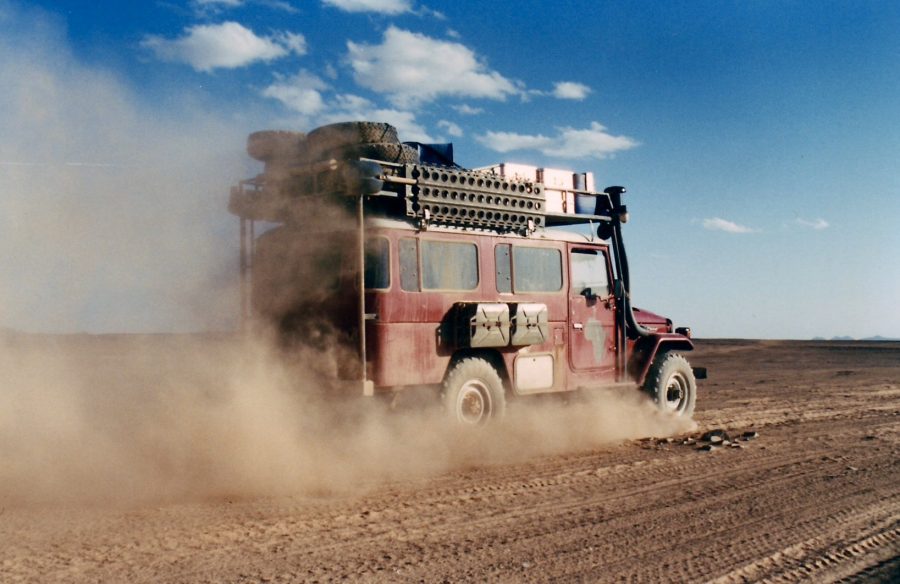
“The second thing is suspension, even if you pack as lightly as you need, you’ll still be carrying a good half a tonne extra at all times with your water and fuel and food supplies. The stock suspension is designed for use around Europe or wherever so upgrading it with something more heavy duty. Try to avoid stretching the suspension as that can lead to tire rod failure which I have seen numerous times.”
If you were to go another overlanding trip, would it be hands down a Land Cruiser?
Chris Scott: “It is a bit of a no-brainer really as what else is there? The slight issue is that the vehicles today are very complex with lots of computers and electronic aids. Older and simpler are key in my book, the new modern Land Cruisers are great but for roughing it in the desert I’d prefer an older model. However, if I was doing a tour then I’d need a heavy load carrier like a pick-up so a Hilux would be great.”
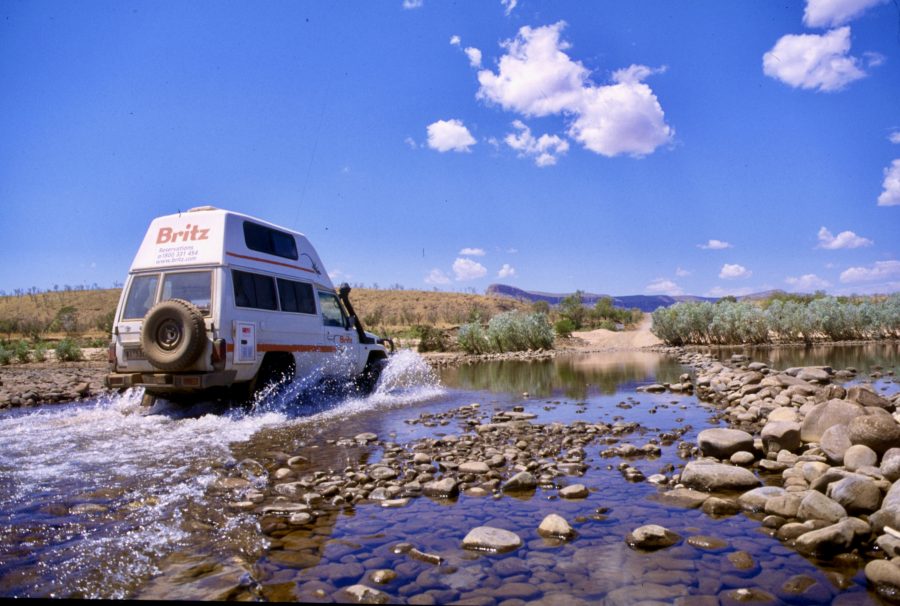
“The more you know, the less you need. You know what is important and what isn’t. Reducing your load reduces stress on the vehicle, reduces fuel consumption, and reduces brake and tire wear. Carrying only what you need has benefits all around.”
Are there any of your previous Land Cruisers that you have regretted selling?
Chris Scott: “I really enjoyed the FJ45 that I had in Australia just because it was with me for a whole year driving around the Northern Territory and Western Australia doing research for one of my books. It was quite a rough engine, it burnt through huge amounts of oil but as long as it was kept topped up it would always keep ploughing on for countless miles of rough going.”
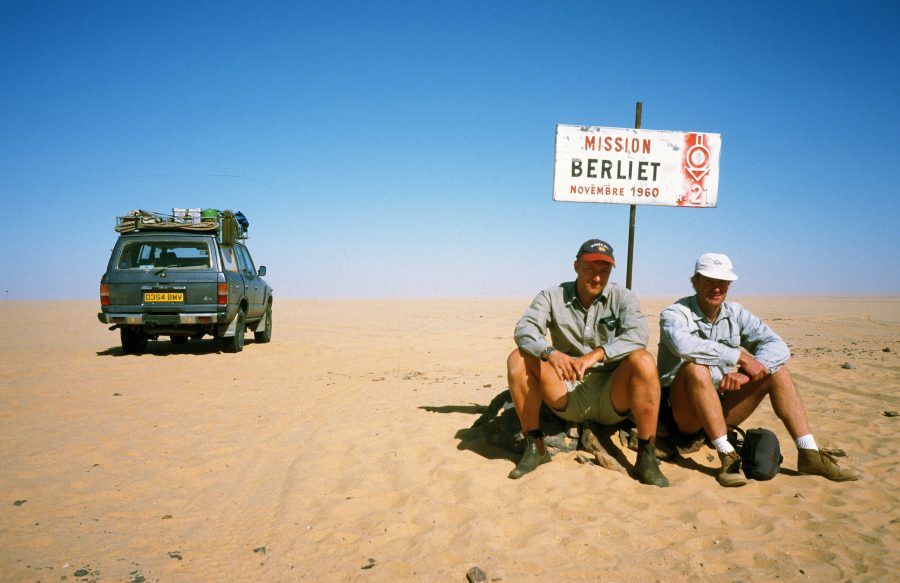
“Another Land Cruiser I was fond of was an HJ61 which I got for £8000 and was the most expensive vehicle I’d bought at the time. It lasted me half a dozen trips in the Sahara, all over Mauritania, Libya, Morocco and many more countries. It wasn’t the best for driving around town with its stiff suspension but the engine was great, it was very comfortable but for the desert, it was a great load carrier as I could pile it with fuel and supplies. It also had the added advantage of having a part-time two-wheel drive system as that meant I only needed to be in four-wheel-drove mode when the going got really tough.”
Is the fact that Land Cruisers are so common in Africa a bonus?
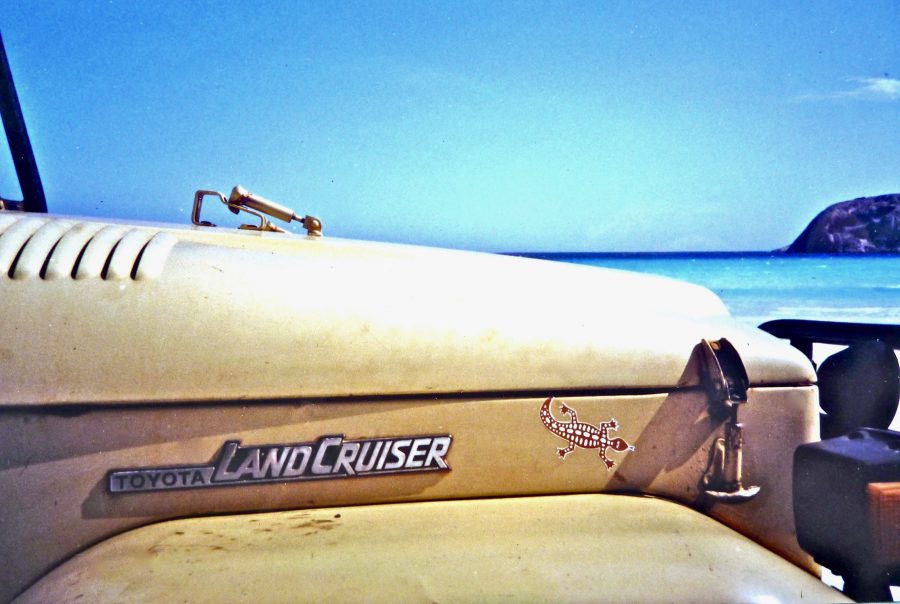
Chris Scott: “For my first Sahara trip in 1983 on a motorbike, I saw 45 Series everywhere and a few 60 and 80 Series and in towns in southern Algeria, half the vehicles in the high street would be 60-Series Land Cruisers when I was travelling there in the ’90s and ’00s. It’s great having the same vehicle as the locals because whatever breaks for them will break for you and you know they will be able to repair or replace it, be it springs, tires, and possibly transmission. They are so popular in Africa, especially places like Algeria that you can get official Toyota parts rather than some questionable parts which might let you down. Use what the locals use as this will minimise any problems you have.”
You’ve done some overlanding trips in a Hilux, how was that compare to the Land Cruisers?
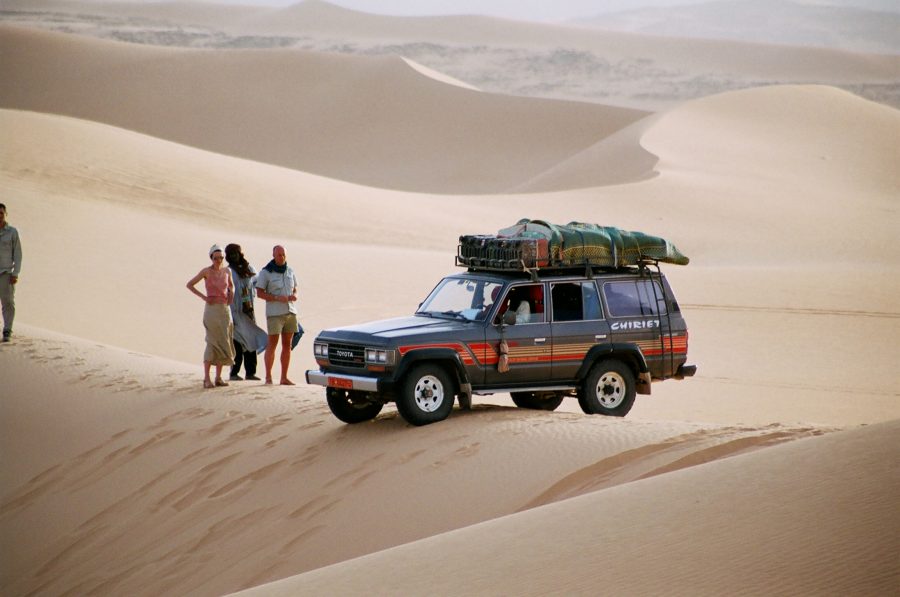
Chris Scott: “I always want a vehicle that is light, not over the top, fuel-efficient, and just enough to do the job. I don’t need a great big excessive SUV or 4×4 to do that and a Hilux was the answer to that for a while. You don’t even need a massively powerful six-cylinder or a V6 engine to do desert crossings, with the correct gearing and correct tire pressures, even a low horsepower vehicle like an old Hilux can get through soft sand with less difficulty than a heavy Land Cruiser. The high torque of the Land Cruisers can often get them digging themselves into the sand whereas the Hilux would just slowly pull itself along. It’s a different type of experience in a Hilux but the fact it is another Toyota says a lot about the brand.”
Lastly, if anyone wants to do some overlanding, what would be your top tips for them to set off?
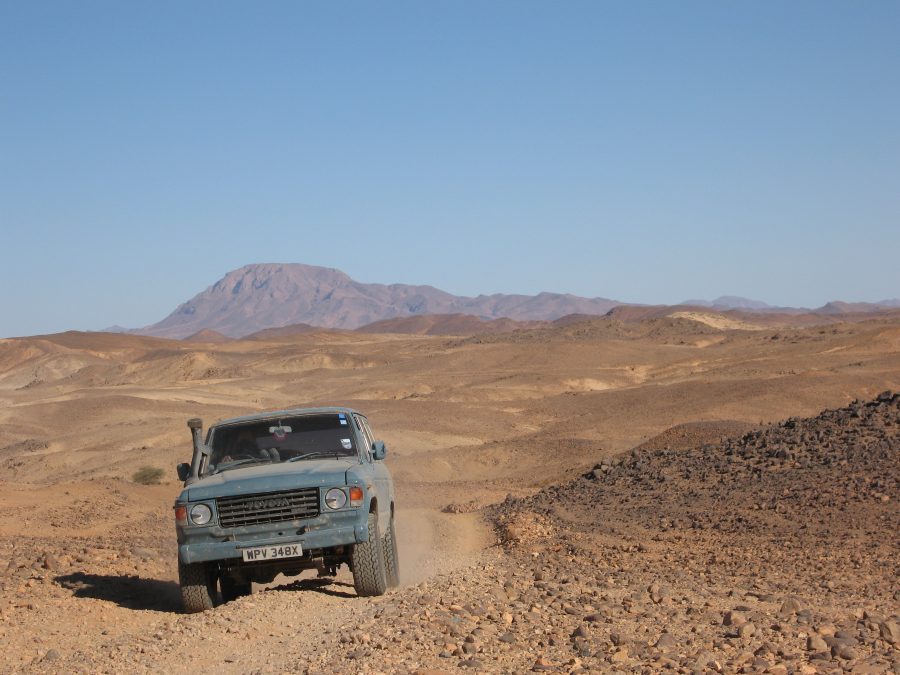
Chris Scott: “Not to try and plug anything but my first tip would be to have a look at my book, Overlanders’ Handbook, it’s about five years old now but will give you a good base to start your Overlanding adventure. You may not take all the advice to heart, but the advice in the book is the sort of stuff that can take weeks or even months to research online. All the basic stuff such as vehicle preparation, documentation, routes etc.”
Chris Scott was speaking to Jake Weaver at the Adventure Travel Film Festival. All of his books can be found online or at at his website.
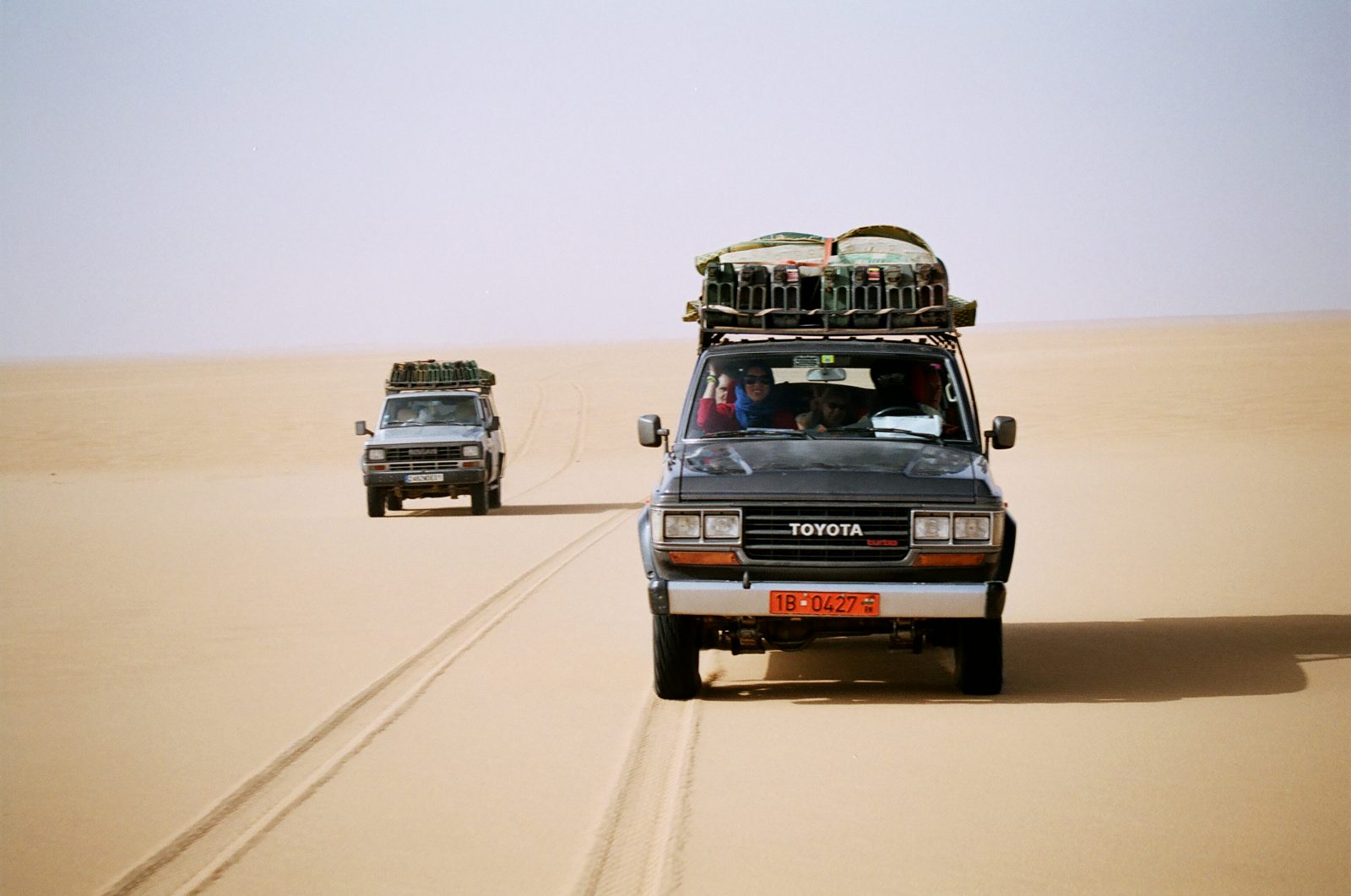
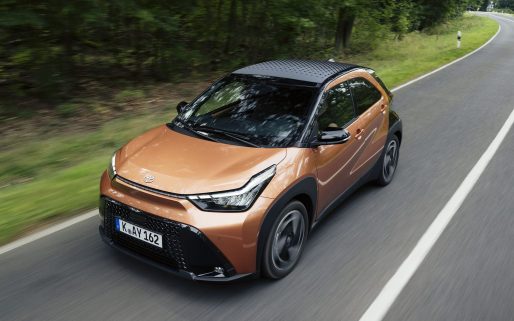
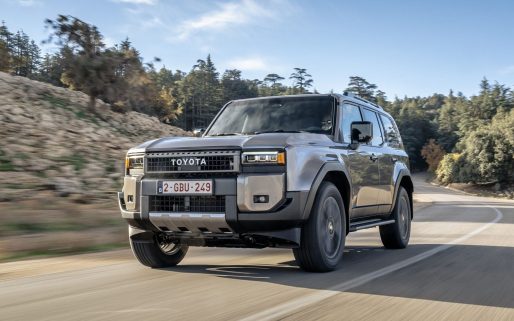

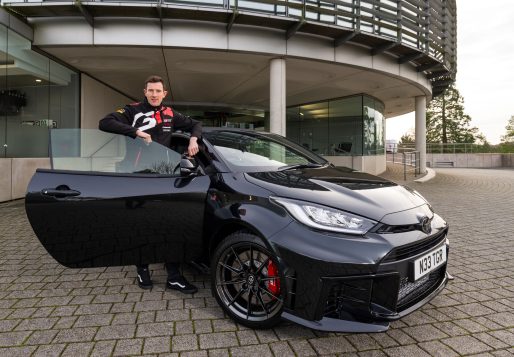
If anyone one knows about Landcruisers and the desert Chris is you’re man
Toyota is tha best